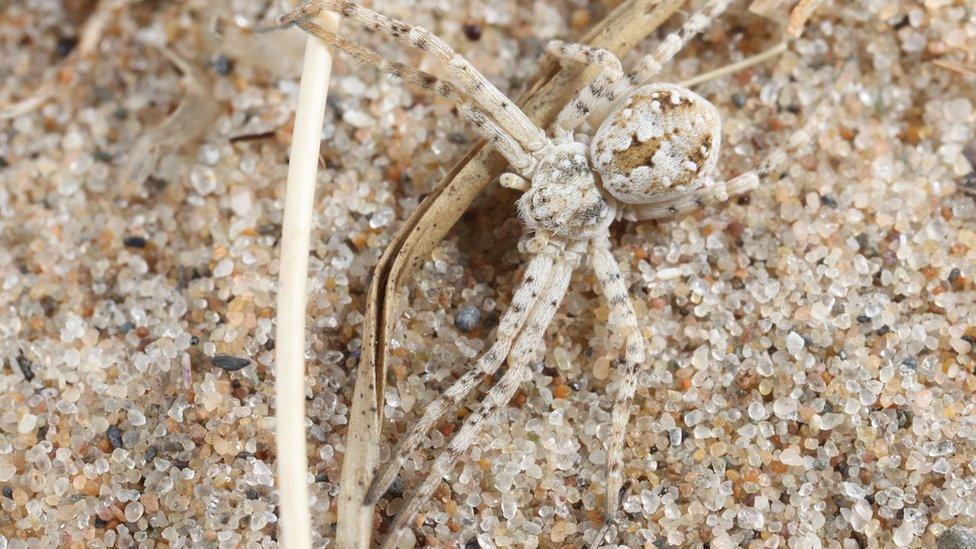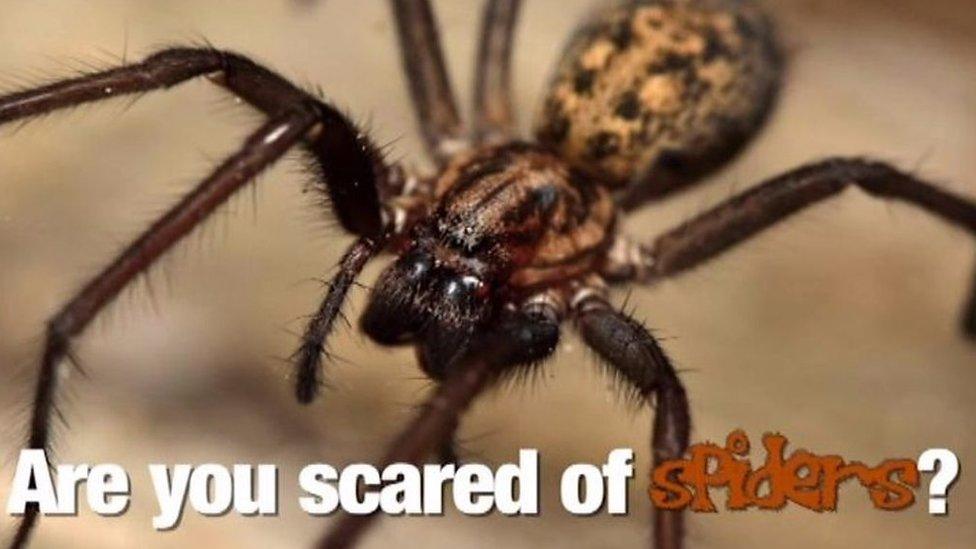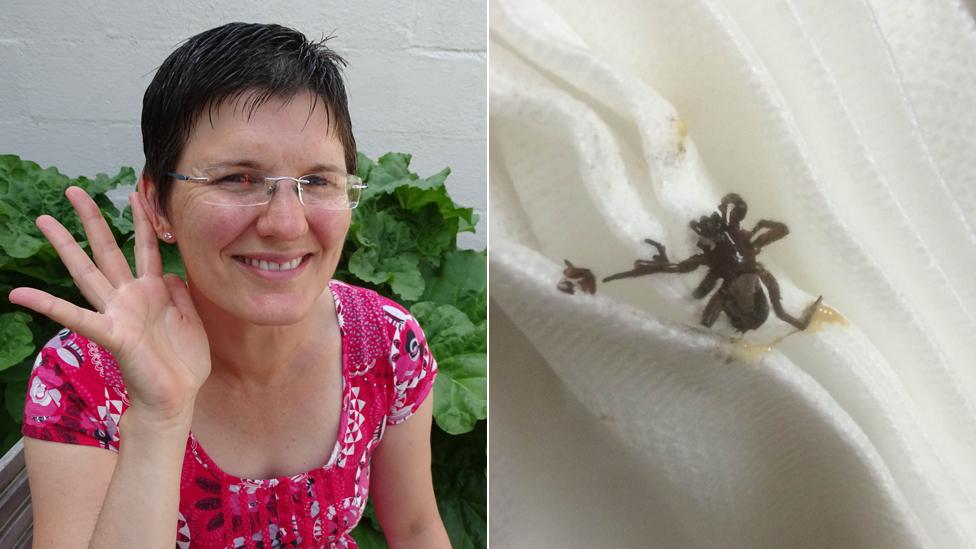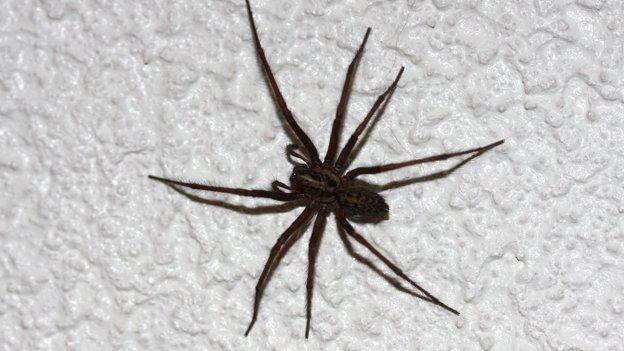Call to conserve 'crucial' rare Wales spider species
- Published

Sand running spiders are found in only three places in Wales
Action is needed to conserve Wales' rare spider species, including those which only live underground, a review has found.
Some of the 500 species of spiders that live in Wales are found almost nowhere else in the world, according to Natural Resources Wales (NRW).
They include cave spiders found in two places in south Wales and sand running spiders on beaches and sand dunes.
NRW said spiders were "crucial" to the environment.
The review, conducted by NRW in conjunction with the British Arachnological Society, found there were 654 different species of spider in the UK - with almost 500 found in Wales.
Of those, 18 species were critically endangered, with 84 species being endangered or vulnerable in Britain.
They include:
The sand running spider, which is a master of camouflage, found at three locations in Wales, including sand dunes at Morfa Harlech in Gwynedd
The cave dwelling spider, found at only two locations in south Wales, which spends its entire life underground
The fen raft spider, found at Pant y Sais National Nature Reserve and Crymlyn Bog, Swansea - it is one of Britain's largest spiders, with females measuring 13-22mm and males 10-16mm
Rhodri Dafydd, senior reserve manager for NRW, said of the sand running spider: "They're a fantastic looking thing. They're one of the most camouflaged spiders we've got, it looks exactly like a piece of sand so we have our work cut out looking for it.
"Lots of spiders build webs to catch their prey, the sand running spider runs after its prey. It's one of the hunting spiders.
"These sand dunes we've got in Wales now are some of the key habitats for them. They require open sandy conditions where they can actively, visually hunt their prey. They get rarer as the habitats get rarer."
Senior reserves manager for Morfa Harlech, Rhodri Dafydd said sand running spiders are 'very rare'
Speaking about looking for the spiders, Richard Gallon from the British Arachnological Society said: "On a basic level you're on your hands and knees grubbing around through vegetation looking for them, but there are more technical means as well - we've got a vacuum sampler.
"It essentially sucks spiders up out of the vegetation so there's no damage to the habitat and you can sort through the spiders alive and then let them go afterwards."
Michael Howe, invertebrate ecologist for NRW, said: "Great Britain boasts a huge variety of species of spider.
"Spiders are crucial to the environment and this assessment highlights the need to take action to prevent further extinctions of our rarest species."
- Published25 March 2017

- Published25 March 2017

- Published6 February 2017

- Published9 June 2016

- Published6 August 2014
